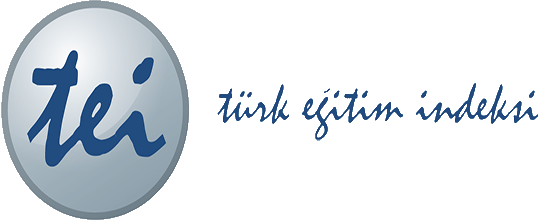METAMORPHOSIS OF THE MANAGERIAL CLASS OF THE MODERN STATE
DOI:
https://doi.org/10.32689/2617-9660-2019-4-2-138-145Keywords:
state, public administration, globalization, instrumental complementarity, transnationalization, managerial class.Abstract
The scientific search of the author is aimed at determining the directions of transformation of the managerial class of the modern state, conditioned by the globalization and the realities of the modern transnational world. It is indicated that the meaningful characteristics of the administering class relate to the current managerial situation, the characteristic feature of which is the disputable character of state borders in terms of many spheres of social life, their maximum transparency, the privatization of certain state powers. The qualitative changes in the image of the managerial elite are considered by the author of this article in the context of the emergence and development of the transnational capitalist class, the processes of convergence of national and global interests and goals, which appears as catalysts of managerial It is emphasized that management is less and less associated with the state, whose administrative structures are increasingly incorporated into supra-national bodies. These circumstances determine discourse on the instrumental complementarity of the administering class of the modern state. However, this is not an indication that it is depreciating, but only indicates a change in the management role of the state, emphasizing the increasing importance of coordination, stimulation and guiding functions in order to ensure concerted action by the state and non-state actors. Strengthening the managerial positions of non-state actors that operate within the framework of the logic of global nomadism, determines the adaptation of the state’s managerial activities to the needs of transnational capital, thus cultivating a transnational management class – a kind of administrative resource, or even «service personnel», «actors outside the sovereignty». Against this background, there is a threat of marginalization of national-oriented administration aimed at protecting the interests of society and the state. Under such circumstances, the actual intellectual vector of modern management science is the issue of «crowding out» the traditionally dominant actors of public administration, which fits into the broader context of the problem of its institutional and managerial capacity.
References
Бек У. Влада і контрвлада у добу глобалізації. Нова світова політична економія / пер. з нім. О.Юдіна. Київ : Ніка-Центр, 2015. 404 с.
Моска Г. История политических доктрин / пер. с итал. Е.И. Темнова. Москва : Мысль, 2012. 326 с.
Артхашастра или наука политики / пер. с санскрита В.И. Кальянова. Ленинград : Издательство Академии наук СССР, 1959. 793 с. URL: http://www.pseudology.org/ artkhashastra/Artkhashastra19159a.pdf
Hardt M., Negri A. Empire. Cambridge : Harvard University Press, 2000. 478 p. URL: http:// www.angelfire.com/cantina/negri/ HAREMI_printable.pdf
Mathews J. T. Power Shift. Foreign Affairs. 1997. Vol. 76, No.1. P. 50- 66. URL: https://www.foreignaffairs. com/articles/1997-01-01/power-shift
Schijf H. Researching Elites: Old and New Perspectives. The Anthropology of Elites. Power, Cultures, and the Complexities of Distinction / J. Abbink and T. Salverda (eds.). New York, 2013. P. 29-45. URL: file:///C:/ Users/larisa/Downloads/ReaseachingElites% 20(1).pdf
Robinson W.I. Debate on the New Global Capitalism: Transnational Capitalist Class, Transnational State Apparatuses, and Global Crisis. International Critical Thought. 2017. Vol. 7, No. 2. P. 171-189. URL: http:// dx.doi.org/10.1080/21598282.2017.13 16512
Грамши А., Лукач Д. Наука политики. Как управлять народом / пер. с итал. Г.Смирнова и др., пер. с нем. С.Земляного. Москва : Алгоритм, 2017. 336 с. URL: https://play.google. com/books/reader?id=UGFADwAAQBAJ& pg=GBS.PP1
Moolakkattu J.S., Robert W. Cox and Critical Theory of International Relations. International Studies. 2009. Vol. 46, No. 4. P. 439-456. URL: https://www.researchgate.net/publication/ 254108310_Robert_W_Cox_ and_Critical_Theory_of_International_ Relations
Robinson W. I. Global Capitalism Theory and the Emergence of Transnational Elites. Critical Sociology. 2012. Vol. 38, № 3. P. 349-363. URL: http://www.soc.ucsb.edu/faculty/ robinson/Assets/pdf/WIDER.pdf
Major A. Transnational State Formation and the Global Politics of Austerity. Sociological Theory. 2013. Vol. 31, No. 1. P. 24-48. URL: http:// citeseerx.ist.psu.edu/viewdoc/download?doi=10.1.1.306.4857&rep=rep1&typ e=pdf
Genschel P., Zangl B. Metamorphosen des Staates – vom Herrschaftsmonopolisten zum Herrschaftsmanager. Leviathan. 2008. Vol. 36, №3. P. 430-454. URL: https://www.gsi.unimuenchen. de/personen/professoren/ zangl/publ/metamorphosen.pdf










